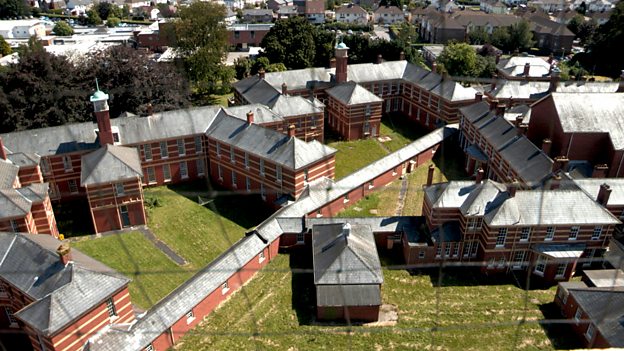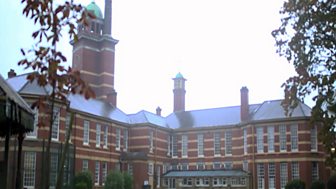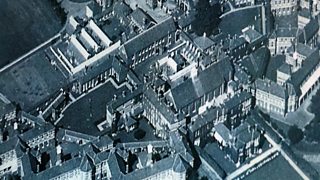
Peace of Mind
Documentary series charting the lives of those with ongoing and chronic mental illness
On iPlayer
Not available
Supporting Content
Information and support
If you've been affected by any of the issues in this series, here are a who can help.
The Whitchurch Project
For the past three years writers and Briony Goffin have been lead writer and support writer, respectively, on a at Whitchurch Hospital. Here, Phil Carradice records some impressions of the place and what goes on there.
From the beginning of our involvement it was clear that Whitchurch Hospital polarises opinion. No half measures, you either love the place or hate it. The treatment of mental health problems has always been emotive and, from the perspective of a creative writing tutor, the only viable approach is to accept the different viewpoints as equally valid.
Whitchurch Hospital is an institution and it has always been rooted in Victorian ideals – even though it didn't open its doors until seven years after Victoria's death.
Like all institutions it has sometimes been at the forefront of professional practice, at other times lagging woefully behind. Yet the building and the people within it – patients and staff alike – remain.
The buildings are a strange mixture of beauty and austerity, by turns welcoming and terrifying. Ask the opinion of anyone who has spent time in the place and, almost always, it is the corridors they remember. Long, echoing and with more than a hint of menace, they snake like arteries across and around the hospital. They connect but they also divide.
The people? Transient and yet permanent, the stories they carry are amazing, full of tragedy and pathos, often with a delicious dark humour. Like the time ex world champion boxer Jimmy Wilde, then a patient, knocked out one of the nurses. The nurse never saw the punch coming but it did give him a claim to fame – how many people can say they have been knocked out by a world champion?
Then there was the case of the lost body. A patient had just died and that night his body was being taken to lie at rest in the chapel. There had been a heavy snow fall and as the trolley went up the slope, the body slid off the back end and disappeared into a deep snow drift. It took quite a while to locate and recover the missing corpse.
Whether or not Whitchurch Hospital has had its day is not for us, the two writers involved, to judge. It might well be a dinosaur left stranded out of time but there are many who would say it offers welcome sanctuary and security in time of need.
During the three years of the project, we encountered a quality of writing that was intense and heartfelt. Poems, stories, descriptive writing, it was all there, some highly critical, some applauding and thankful. The plan is to produce an anthology of the work – hopefully next year.
If the aim of the Project was to enable people - patients, past patients, staff, ex-staff, even people from the community around the hospital - to express themselves in writing then it can be said to have succeeded. We ran workshops, met with individuals and had work sent through to us, unsolicited but always heartfelt. The sheer amount and the quality of what was produced was amazing, so much so that we are still going through it, reading and enjoying - if you can use that word when dealing with peoples' pain and hurt - some of the best writing we have seen in years.
Whenever the place finally closes, that writing will be an apt celebration of the work of Whitchurch Hospital.





